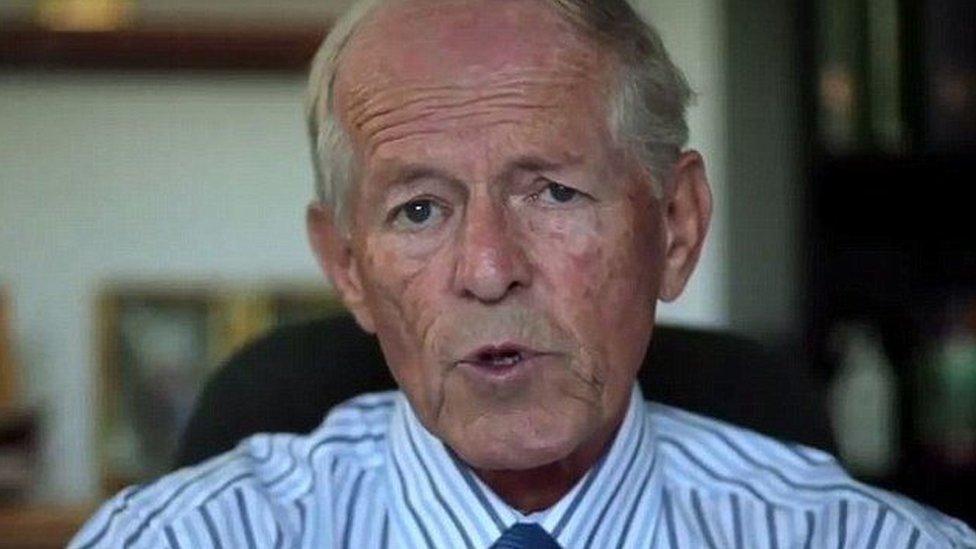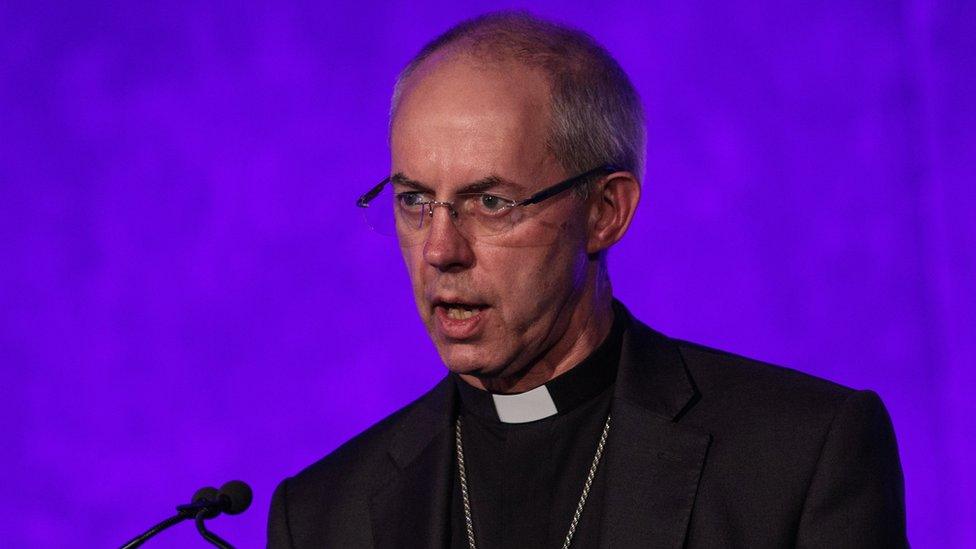Church's handling of John Smyth abuse allegations to be probed
- Published

John Smyth QC was a senior member of Christian charity the Iwerne Trust in the 1970s and 1980s
An independent inquiry is being launched into the Church of England's handling of allegations against a barrister who led Christian camps and allegedly violently beat boys.
John Smyth QC, who died aged 77 last year, was accused of attacking boys at his Winchester home who he had met at a Dorset camp during the 1970s and 1980s.
He had been in the process of being extradited from Zimbabwe after the allegations arose in 2017.
The inquiry will begin on 19 August.
Keith Makin, a former director of social services with 30 years' experience in the sector, will lead the review into what happened at the Iwerne Minster camp.
Those who claim to be victims will be encouraged to give evidence at the inquiry either anonymously or in person.
It will also seek to obtain any documents in the control or possession of the Archbishop of Canterbury which relate to any allegations of abuse against Mr Smyth, and any action that may have been taken.

Archbishop of Canterbury, Justin Welby, worked at some of the camps as a young man in the 1970s but said he knew nothing of the abuse
In 1982, Mr Smyth was confronted about his conduct after the Iwerne Trust compiled a secret report, written by the Rev Mark Ruston and Rev David Fletcher.
Mr Smyth was encouraged to leave the country and moved to Zimbabwe without any referral being made to police.
In Zimbabwe he was charged with the manslaughter of a 16-year-old boy, who was attending one of his summer camps. Mr Smyth was not convicted of the offence.
The Archbishop of Canterbury, Justin Welby, is expected to give evidence, having attended camps at Iwerne Minster as a young man
He has admitted knowing Mr Smyth but has denied any knowledge of his activities.
Mr Smyth had been involved in the camps for several years and became chairman of the board of the Iwerne Trust, which provided the funding, from 1974.
'Profoundly sorry'
Also in leadership were the brothers Jonathan and David Fletcher, both of whom were ordained ministers.
Last month, it emerged that Rev Jonathan Fletcher had been barred from leading services in the Church of England, after he was accused of beating congregants on their naked bottoms and engaging in naked massage sessions.
In a statement, Mr Fletcher maintained that the punishments, administered in a long-standing prayer group, were "light-hearted forfeits" if members failed to hit targets of "healthy and holy living".
"These included going without chocolate, cold baths and school-type gym shoe punishments," Mr Fletcher said.
"Although at the time we definitely did not think we were doing anything wrong, I've seen since that it could have caused much harm both to individuals and to the reputation of conservative evangelicalism for which I am profoundly sorry."
- Published12 August 2018
